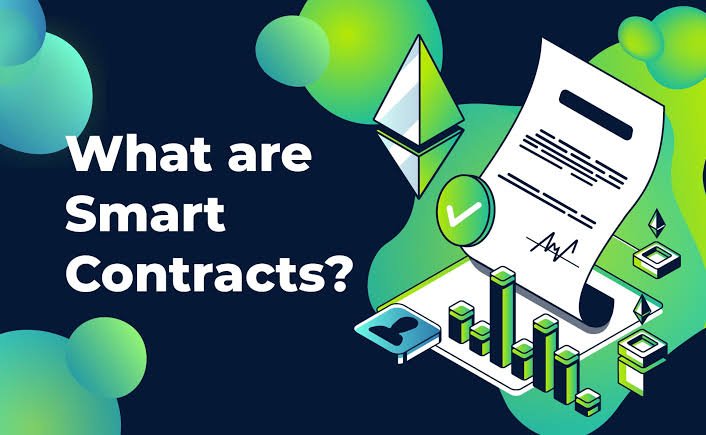How smart contracts works (For newbies)
A smart contract is a self-executing contract with the terms of the agreement between buyer and seller being directly written into lines of code. They run on blockchain technology, making them secure, transparent and tamper-proof. When the conditions in the contract are met, the terms of the agreement are automatically executed, without the need for intermediaries.
The code and the agreements stored in smart contracts are visible to all participants in the network, and once the contract is deployed, it can't be altered. This eliminates the need for trust in intermediaries and ensures that all parties are held accountable to the terms of the agreement.
Smart contracts can be used for a variety of purposes, including the exchange of money, property, shares, or anything of value in a transparent, conflict-free way while avoiding the services of a middleman. This can greatly reduce transaction costs, increase efficiency, and bring greater trust and security to various transactions.
Smart contracts are run on a decentralized platform, meaning they are not controlled by any single entity. This eliminates the need for intermediaries, as the code in the contract executes automatically. Smart contracts also allow for automated dispute resolution, as the terms of the agreement are encoded into the code. This means that disputes can be resolved through the execution of the contract itself, rather than relying on intermediaries like courts or lawyers.
Smart contracts can be written to include various conditional statements, making them flexible and adaptable to a wide range of use cases. For example, a smart contract can be written to automatically release funds to a seller once a buyer confirms that they have received the goods or services specified in the contract. This type of contract can also include provisions for refunds or penalties in the case of disputes.
The use of smart contracts can also bring greater transparency and accountability to various transactions. All parties have access to the same information, and the code in the contract can be audited to ensure its accuracy. This helps to build trust between parties and reduces the risk of fraud or errors.
Smart contracts are an innovative solution that can revolutionize the way we conduct transactions. With the ability to automate transactions, reduce transaction costs, and increase transparency, smart contracts have the potential to greatly improve the efficiency and security of a wide range of industries.
One of the key benefits of smart contracts is that they can automate complex processes, reducing the time and effort required to complete a transaction. This can have a significant impact on the speed and efficiency of a wide range of processes, from supply chain management to real estate transactions.
Another advantage of smart contracts is that they can reduce the risk of fraud or errors. By automating the execution of contracts, smart contracts eliminate the need for manual intervention and reduce the risk of human error. This can help to ensure that all parties involved in a transaction are held accountable to the terms of the agreement.
Smart contracts can also increase the security of transactions. By running on a decentralized platform, smart contracts are stored on a distributed ledger, making them tamper-proof and resistant to hacking and other security threats. This helps to ensure that the terms of the agreement are carried out as intended and that the rights of all parties are protected.
Smart contracts can also help to reduce the costs associated with transactions. By eliminating the need for intermediaries like lawyers or brokers, smart contracts can help to reduce the cost of conducting transactions, making them more accessible to a wider range of people.
Smart contracts have the potential to greatly improve the efficiency, security, and accessibility of a wide range of transactions. As blockchain technology continues to evolve and mature, we can expect to see the adoption of smart contracts increase across a range of industries and applications.
Posted Using LeoFinance Beta

